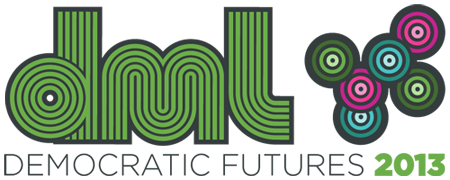21C: The Civic Me: Blended, Fragmented, Unconscious Civic Identity Expression in Online Spaces
The rise of digital media has created novel contexts for public discourse and participation. These media are increasingly integral to civic and political engagement. Social media platforms provide conduits for information circulation, dialog with peers and elites, and opportunities to investigate civic issues and mobilize social networks (Cohen & Kahne, 2012). The centrality of civic identity to civic engagement has been recognized (Crocetti et al., 2012, Hart et al., 2011), yet little is known about how people decide to use new media to express – or refrain from expressing - their civic identities online. The MacArthur Research Network on Youth and Participatory Politics (YPP) is exploring the intersection of youth, new media and political life. In this panel, we highlight an increasingly important literacy – the capacity to cultivate and thoughtfully express one’s civic identity alongside one’s social and professional identities in online spaces - and consider implications for 21st century civic education.
Our panel’s diverse methodological approaches (ethnographies, interviews, media content analyses) provide multifaceted insights to the question, “How are young people expressing their civic and political identities online?” We consider how they negotiate various identities and audiences, and the impacts of peers, mentors, and organizations. The first presentation draws on two case studies of exemplary, innovative youth organizations, including a youth group building on a fan community to mobilize for civic purposes and a student run organization, with a robust online presence, that provides resources and support for students who support liberty. This study finds that when members’ personal identities are connected to their organizational roles, they tend to integrate their civic and personal identities. The second presentation draws on interviews with youth engaged in civic or political organizations, and social movements. This study finds some youth proactively express civic identities across different online contexts, feeling a responsibility to inform and engage others. Others fragment their online identities, at times due to push back from peers. The third presentation draws on interviews with youth involved in more traditional civic organizations, e.g. school and religious youth groups. This study finds that while some youth do express their online political identities intentionally, others do so unintentionally. Many of these same participants reported not wanting to engage in political expression online – often to avoid conflict.
Our studies have implications for educators involved in youth development and civic learning. Youth need new skills to navigate the evolving terrain of online identity expression. Educators can facilitate reflective conversations regarding the what, how, when, where, and why of expressing a civic identity; support youth as they explore their civic identities online, helping them connect unconscious expression to a realized civic identity; and help youth deal with conflict and social pressures in online dialog rather than simply refrain from participating in civic and political discussions.
The practitioner discussant will respond to our presentations and offer relevant insights from working at Mikva Challenge, an organization that cultivates young civic leaders and activists.



